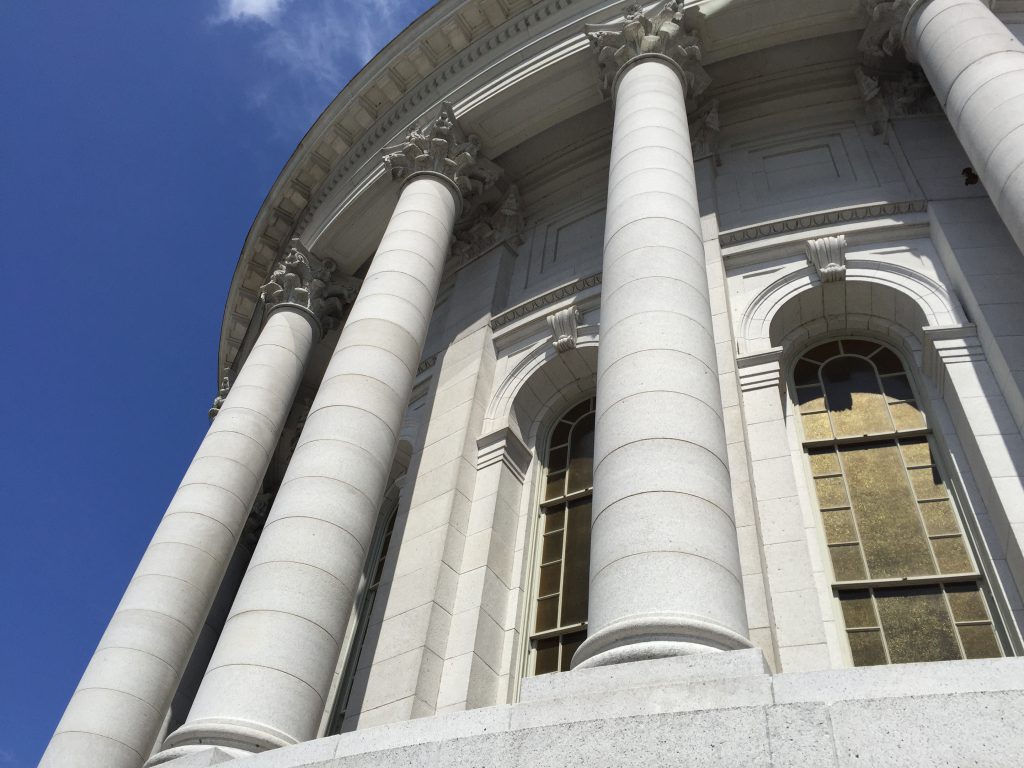Fight Over Pollution Lawsuits Continues
Three settlements okayed but GOP legislators and Attorney General war over who gets money awarded.
State lawmakers approved three legal settlements Wednesday totaling $285,000 with farms in connection with the violation of environmental standards.
The Joint Finance Committee (JFC) gave its OK to the settlements without debate in a meeting that was adjourned in barely 10 minutes. The absence of drama obscured entrenched partisan conflicts surrounding not just the settlements, but the agenda set by the committee leaders.
The finance committee’s four Democrats, meanwhile, aired a grievance of their own after the brief session, criticizing the committee’s GOP co-chairs for unfinished business that has been put before them but has not advanced.
The settlements approved Wednesday included:
- A $25,000 settlement, plus another $5,000 in attorney’s fees, with LandL Farms and its owner, Robert Schuessler, in Outagamie County for violations in the handling of manure that led to pollution discharges to nearby streams. DOJ submitted the settlement to the finance committee for approval in September 2021.
- A $30,000 settlement with Robert Knutson in Eau Claire County for improperly filling wetland when he rerouted a stream on his cattle farming property. DOJ submitted that settlement for approval in October 2021.
- A $225,000 settlement with Johannes Wakker, owner of Wakker Dairy Farm, a concentrated animal feeding operation (CAFO) in Kewaunee County, for a series of violations involving mishandled manure discharged from the operation. That settlement was in the form of a consent agreement, which was reached in advance and avoided a direct lawsuit.
The two settlements from last year have been lingering without action in the committee for six months. The office of Rep. Mark Born (R-Beaver Dam), co-chair of the finance committee, did not respond to a question about the reason for the long delay in approval for those two settlements.
Lame-duck session sets limits
That the settlements had to go through the finance committee at all for approval is the consequence of the lame-duck legislation that the Republican-majority Legislature and just-defeated Gov. Scott Walker enacted in December 2018, ahead of Democrats Tony Evers taking office as governor and Josh Kaul as attorney general.
Among the new requirements that session produced was one granting the joint finance committee the power to approve or reject proposed DOJ settlement agreements before they’re entered into, which necessitated Wednesday’s finance committee vote. Another provision directed that all settlement funds be passed into the state’s general fund.
In June 2021, the Republican leaders in the Legislature sued Kaul in Polk County, asserting that consent-order settlements without a lawsuit must also go before the finance committee. The suit also charges that fees from those pre-lawsuit settlements should be paid into the general fund, but they weren’t.
Adam Jarchow, a former legislator who is seeking the Republican nomination to run against Kaul in November for attorney general, joined the Legislature as a plaintiff in the lawsuit.
In March, a Polk County judge issued a split decision. The ruling sided with the Legislature, ruling on summary judgment DOJ must get finance committee approval on the consent-order settlements. But the same judge also sided with the Department of Justice in concluding that the settlement fees from those cases weren’t required to go into the general fund. Both DOJ and the Legislature are appealing the parts of the ruling that went against them.
In approving the three settlements on Wednesday, the finance committee’s Republican leaders included language stipulating their belief that they will ultimately prevail on the settlement funds dispute. If they do, their motion states, “the JFC will expect the Attorney General at that time to deposit all attorneys’ fees from these settlements into the general fund.”
Democrats offer alternative
The committee’s four Democrats offered a version that simply accepted the settlements without any of that qualifying language; it was rejected 4-10, with the Republicans present all voting against it. The GOP settlement motion, including its aside about where the money should go, then passed unanimously.
In a statement that the committee’s Democrats issued after the meeting, however, they focused on another dispute entirely: a long list of requests in the in-box of the finance committee that they contend have been ignored by the GOP leaders, whom they blasted for taking an “extended spring break.”
The list, enumerated in a memo from the Legislative Fiscal Bureau that was requested by the Democrats on the committee, includes funding requests required to spend money that has already been accounted for in the state budget, but that the committee retains final authority to approve.
There are also six pending requests for the DNR’s Knowles-Nelson Stewardship program grants to ensure that various locations that have already been vetted locally can be set aside as natural preserves. One or more anonymous lawmakers has lodged objections to each, which blocks automatic approval.
Projects that have been hung up by anonymous objections include the Cedar Gorge-Clay Bluffs Preserve along the Lake Michigan shoreline 30 miles from Milwaukee. The proposed park includes pristine bluffs, wetlands, white cedar woods, and critical wildlife habitats and has received broad bipartisan support. The Knowles-Nelson Stewardship grant was the final piece of funding needed to conserve the land, the Milwaukee Journal Sentinel reports. Now it might not happen.
“We have all of these other issues that are out there,” said Erpenbach, who called Wednesday’s minimal-agenda meeting “a waste of everybody’s time.”
“When the finance committee meets for 15 minutes or less,” he said, “or five minutes or less, or calls the roll and has one vote, and we’re done — you know, we’re not really doing the job we’re supposed to be doing.”
Pollution lawsuit resolutions get lawmakers’ approval, but leave unfinished business was originally published by the Wisconsin Examiner.






















